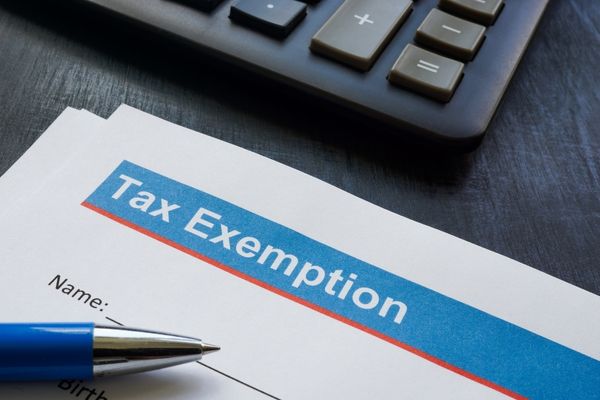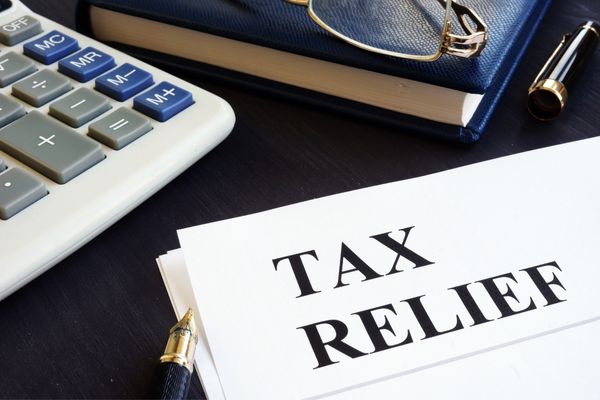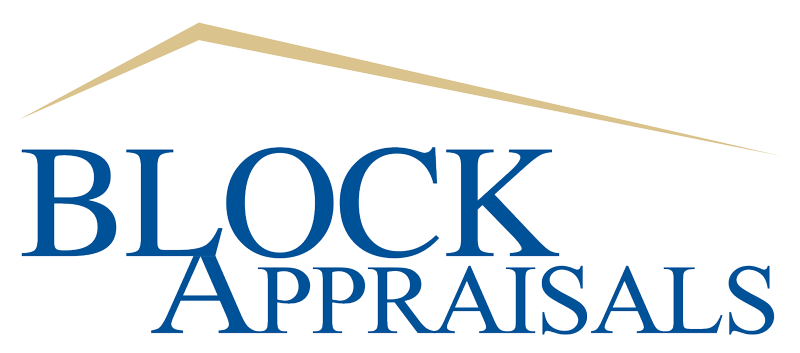There is no specific age at which you completely stop paying property taxes in NYC. However, homeowners aged 65 and older can qualify for significant property tax reductions through the Senior Citizen Homeowners’ Exemption program, potentially saving up to 50% on their annual property tax bill. For comprehensive property tax guidance and NYC real estate appraisals, professional assistance can help navigate these complex regulations.
Key Facts About NYC Senior Property Tax Relief:
- Age Requirement: You must be 65 years old by December 31 of your application year to qualify for the main exemption program.
- Income Limits: Total household income must fall below established annual thresholds set by local jurisdictions.
- Property Requirements: The property must be your primary residence, and you must hold legal title.
- Savings Potential: Qualifying seniors can receive property tax reductions of up to 50%, potentially saving thousands of dollars annually.
- Additional Programs: The Enhanced School Tax Relief program provides rebate checks for homeowners 65+ who meet income requirements.
- Application Process: Annual applications may be required for some programs, and proper documentation, including birth certificates and income verification, is essential.
While property tax obligations continue throughout homeownership, NYC offers multiple relief programs that can substantially reduce the financial burden for qualifying senior citizens on fixed incomes.

NYC Property Tax Age Exemption Guidelines
Property taxes represent a significant ongoing expense for homeowners throughout their retirement years. Many senior citizens wonder if there’s an age when these financial obligations decrease or disappear entirely. While no specific age eliminates property taxes, several relief programs exist to help qualifying seniors reduce their tax burden substantially. The NYC Department of Finance administers these programs and provides detailed application procedures.
Understanding property tax exemptions becomes crucial as homeowners age and face fixed incomes. These programs can provide meaningful financial relief during retirement years. Senior homeowners should explore available options early to maximize their potential savings, particularly when working with a residential appraiser in NYC to understand their property’s assessed value.
Senior Property Tax Relief Program Overview
The Senior Citizen Homeowners’ Exemption program offers substantial property tax reductions for eligible homeowners. This program specifically targets seniors who meet both age and income requirements. The exemption can significantly lower annual tax obligations for qualifying households. Property owners should also consider obtaining a market rent study to better understand their property’s income potential.
Property tax relief through this program varies based on local regulations and household circumstances. Many seniors discover substantial savings through proper application and documentation. The program continues to provide ongoing benefits as long as eligibility requirements are satisfied. The New York State Department of State provides additional resources for property owners seeking valuation guidance.
Key Requirements for Property Tax Exemptions
Qualifying for senior property tax exemptions requires meeting specific criteria that protect program integrity. These requirements ensure assistance reaches those who need it most. Understanding eligibility helps homeowners prepare proper documentation and applications, especially when working with estate appraisers in NYC for comprehensive property evaluations.
Age Guidelines
- Homeowners must reach age 65 before December 31 of their application year
- Age verification requires official documentation such as birth certificates or government identification
- Spouses may qualify if one partner meets the age requirement while both own the property
Income Restrictions
- Total household income must fall below established annual limits set by local jurisdictions
- Income calculations include wages, pensions, social security, and investment returns from all household members
- Annual income thresholds adjust periodically to reflect current economic conditions and cost-of-living changes
The Appraisal Standards Board provides guidance on property valuation standards that may impact tax assessments.
Property Ownership and Residency Rules
- The exempted property must serve as the applicant’s primary residence throughout the tax year
- Homeowners must hold legal title or beneficial ownership interest in the qualifying property
- Only one property per household qualifies for the exemption, regardless of additional real estate holdings
- Continuous occupancy requirements ensure the home remains the primary residence rather than an investment property
For properties requiring professional valuation, commercial appraisers in NYC can provide accurate assessments. The NYC Department of Buildings maintains records that may be relevant to property tax calculations.
Property taxes continue to impact senior homeowners even with available exemptions and relief programs. These programs provide essential financial support while homeowners maintain their independence and housing stability. Seniors should consult with tax professionals and consider divorce appraisers in NYC when property division is involved, to understand all available options and ensure proper application procedures.

Property Tax Relief Benefits for Senior Homeowners
Property taxes represent a significant financial burden for many homeowners, especially seniors on fixed incomes. Understanding available relief programs can help reduce these costs substantially. Senior homeowners have access to multiple programs designed to lower their annual property tax obligations. Research from Zillow Research shows the impact of property taxes on homeownership costs across different markets.
Senior Citizen Homeowners’ Exemption Benefits
The Senior Citizen Homeowners’ Exemption offers valuable property tax relief for qualifying homeowners. This exemption reduces the taxable assessed value of your primary residence. The program directly lowers your annual property tax bill by exempting a portion of your home’s value. Eligible homeowners can see meaningful reductions in their yearly property tax obligations. Income levels and property location determine the exact exemption amount you receive, and a replacement cost analysis may be necessary for accurate property valuation.
Senior property owners may qualify for reductions of up to 50% on their property taxes. The exemption amount varies based on household income and local program guidelines. Lower-income seniors typically receive larger exemption percentages than higher-income applicants. Property tax savings can amount to thousands of dollars annually for qualifying homeowners. The Appraisal Institute provides professional standards that ensure accurate property assessments.
Age Requirements for Property Tax Relief Programs
Many homeowners wonder about age-related property tax benefits and eligibility requirements. Senior citizens often qualify for multiple property tax relief programs simultaneously. Age 65 typically marks the beginning of enhanced property tax benefit eligibility. However, some programs offer benefits to homeowners as young as 62 years old. Professional mortgage appraisers in NYC can help determine accurate property values for refinancing opportunities.
Property tax obligations don’t completely disappear at any specific age for most homeowners. Instead, various programs provide graduated relief based on age and income criteria. Understanding these programs helps seniors maximize their property tax savings effectively. The ACRIS database provides public records that may be useful for property research.
Enhanced School Tax Relief Program Benefits
The Enhanced School Tax Relief program provides additional property tax savings for senior homeowners. This program specifically targets school district property taxes, which often represent the largest portion. Eligible homeowners receive direct rebate checks rather than assessment reductions. The rebate system provides immediate cash relief to qualifying senior property owners.
Homeowners aged 65 and older may qualify for this enhanced relief program. Income eligibility limits apply to determine qualification for the rebate program. Annual applications are required to maintain eligibility for the Enhanced School Tax Relief program. The rebate amounts vary based on income levels and local school district rates. For specialized property types, vacant land appraisers in NYC can provide accurate valuations.
These programs can be combined with other exemptions for maximum property tax savings. Senior homeowners should explore all available options to minimize their property tax burden. Professional guidance can help identify the best combination of programs for individual situations. The National Association of Realtors provides market data and trends that may influence property tax planning.
For complex property situations requiring expert analysis, litigation appraisers in NYC can provide detailed valuations. Additional resources are available through NYC Open Data and the Furman Center for comprehensive property market research.
Conclusion
While NYC homeowners never completely stop paying property taxes at any specific age, significant relief is available for seniors. The Senior Citizen Homeowners’ Exemption program offers up to 50% property tax reductions for homeowners aged 65 and older who meet income requirements. Combined with the Enhanced School Tax Relief program, qualifying seniors can achieve substantial savings on their annual property tax bills. These programs provide crucial financial support for seniors on fixed incomes, helping them maintain homeownership during retirement.
Success requires understanding eligibility requirements, maintaining proper documentation, and applying annually when required. Senior homeowners should explore all available programs early and consider consulting tax professionals to maximize their potential savings and ensure compliance with program requirements. For specialized appraisal needs, pre-listing appraisers and bespoke NYC appraiser solutions are available. Additional support from HUD’s FHA programs may also benefit qualifying homeowners.
For personalized guidance on property tax matters and professional appraisal services, contact our NYC real estate appraisers or learn more about our team.
FAQs
At what age can I qualify for NYC property tax exemptions?
You must be 65 years old by December 31st of your application year to qualify for the main Senior Citizen Homeowners’ Exemption program. Age verification requires official documentation like birth certificates. If you’re married, you may qualify if one spouse meets the age requirement while both own the property together. Some programs may offer benefits starting at age 62.
How much can I save on property taxes as a senior?
Qualifying seniors can receive property tax reductions of up to 50% through the Senior Citizen Homeowners’ Exemption, potentially saving thousands of dollars annually. The exact savings amount varies based on your household income and local guidelines, with lower-income seniors typically receiving larger exemption percentages. When combined with the Enhanced School Tax Relief program, total savings can be even more substantial.
What are the income limits for senior property tax relief?
Income limits vary by jurisdiction and are adjusted periodically to reflect economic conditions. Total household income from all sources must be calculated, including wages, pensions, Social Security benefits, and investment returns from all household members. These thresholds determine both eligibility and the percentage of exemption you’ll receive, with lower income levels qualifying for higher exemption percentages.
Can I combine multiple property tax relief programs?
Yes, eligible homeowners can often combine the Senior Citizen Homeowners’ Exemption with the Enhanced School Tax Relief program for maximum savings. The Enhanced School Tax Relief program provides direct rebate checks rather than assessment reductions, offering immediate cash relief that complements the exemption benefits. This combination can significantly reduce your overall property tax burden.
Do I need to reapply for property tax exemptions every year?
Application requirements vary by program, with some requiring annual renewal while others continue automatically once approved. The Enhanced School Tax Relief program typically requires annual applications with updated documentation. You must continue to meet all eligibility requirements, including income limits, residency requirements, and property ownership rules. Check with your local tax assessor’s office for specific renewal requirements.



